Apply for this course
Please select when you would like to start:
If you're a UK applicant wanting to study full-time starting in September, you must apply via UCAS unless otherwise specified. If you're an international applicant wanting to study full-time, you can choose to apply via UCAS or directly to the University.
If you're applying for part-time study, you should apply directly to the University. If you require a Student visa, please be aware that you will not be able to study as a part-time student at undergraduate level.
Why study this course?
The Film and Television Production BA is a dynamic production-focussed course for aspiring filmmakers. The skills you acquire will allow you to work in specialist and broad-based media roles. You'll produce a wide range of film and television productions, creating a portfolio of moving image work spanning diverse genres and formats such as short fiction film, documentary and multi-camera TV studio production alongside constantly changing new and emerging practice such as virtual production, online and interactive content.
Our film and photography courses are ranked second in the UK overall, according to the Guardian University Guide 2026.
This long-established degree has a strong employability and industry focus, consistently supporting and developing student filmmakers to produce work of the highest standard. Since 2019, our students have been nominated for six Royal Television Society Student Television Awards for their graduation films, going on to win three top prizes in the Best Factual (documentary film), Best Editing and Best Drama categories.
Second in the UK
Our film and photography courses are second in the UK overall, according to The Guardian University Guide 2026
Benefit from external experts
We invite a range of guest speakers to deliver masterclasses including workshops led by BAFTA winning directors and producers
Boost your career prospects
This degree course has a strong employability and industry focus, consistently supporting and developing student filmmakers to produce work of the highest standard
Course modules
The modules listed below are for the academic year 2025/26 and represent the course modules at this time. Modules and module details (including, but not limited to, location and time) are subject to change over time.
Year* 1 modules
Year 2 modules
Year 3 modules
Film Theory and Film Style
This module currently runs:autumn semester - Monday morning
(core, 15 credits)
This module introduces students to the formal characteristic of film in conjunction with key Film Studies critical tools.
The purpose of the first part is to introduce students to matters of film style and meaning such as mise en scene, framing, editing, sound, costumes and tone, enabling students to develop skills of textual analysis.
Students will also learn about key theories such as Star Studies, Authorship and Genre so that you can apply key theoretical models and frameworks to film analysis.
In this module you will:
• Develop and practice skills of close textual analysis of specific film texts
• Develop an understanding of key theoretical approaches to the study of film
• Apply theoretical models and frameworks to film analysis
• Have the opportunity to evaluate different theoretical frameworks
• Develop transferable skills of written communication, planning and presentation and gain feedback on your ability to do this
Read full detailsPost-Production
This module currently runs:spring semester - Friday afternoon
(core, 15 credits)
The module will provide a practical introduction to post-production using industry standard editing software (e.g. Adobe Premiere Pro, DaVinci Resolve).
You will get hands-on experience in editing audio and video footage, guided by step-by-step exercises.
You will develop professional practices in editing such as setting up a project, using different types of cuts and transitions, applying effects, colour and audio correction and outputting completed sequences in appropriate formats.
The module aims to:
• Develop students’ confidence and understanding of using editing software.
• Provide students with an overview of how to edit a sequence to convey a narrative.
• Take students through the stages of how to edit a short film.
Pre-Production and Visual Storytelling
This module currently runs:autumn semester - Friday morning
(core, 15 credits)
A highly creative module in which students devise and develop concepts for short film drama projects, emphasising the importance of how to communicate a story visually.
You will learn about approaches to drama storytelling via screenings, discussion, and practice.
You will research, pitch, and develop treatments, storyboards and scripts following industry guidelines and legal frameworks.
The module aims to:
Develop students’ understanding of visual storytelling (using camera, location, sets and actors).
Encourage students to express their ideas effectively via appropriate formats.
Provide students with an overview of how to plan all elements for a drama production in a team.
Provide insight into the paperwork and planning required for pre-production for drama including different production roles.
This module is studied alongside and in combination with the Shooting Drama module.
Read full detailsRevolution of Film and Television: 1950 to the Contemporary Media World
This module currently runs:spring semester - Tuesday afternoon
(core, 15 credits)
Film and television since the 1950s has periodically undertaken significant shifts in terms of production, texts, audiences, and relation to politics, society, technology, and culture. This history reads as a series of revolutionary changes and developments. This module introduces students to the revolutions and history of film and tv from 1950 to date.
Students will explore key developments in the history of film since 1950 such as the series of waves and new approaches to realism; the development of European and international art cinema; the impact of television upon film; the development of the blockbuster and franchise model of production; the relation of film to political history; new social movements and cinema; the emergence of third-cinema and postcolonial film; postmodern film movements; and the digital revolution impacting film and television streaming. You will identify key aspects of these revolutions in national cinema, new realism, art cinema, relations to technology, society, culture, politics and history. The transformation of Hollywood and ambition of Italian Neorealism, the British New Wave, the French New Wave, European and International art cinema, and new American cinema will be discussed and you will analyse editing techniques, elements of mise en scene, and cinematography. The emergence third-cinema, film of the global south, and post-colonial texts will be evaluated. Postmodern movements, such as Dogme 95, and the move to digital platforms will be critically assessed.
Students will understand key moments in the revolution of film and tv and be able to contextualise within broader cultural, industrial, technological, political and social contexts.
Attention is primarily given to feature films, but documentary, experimental, and non-canonical films will be scrutinised, and both feature and short-length will be screened and considered.
Read full detailsShooting Documentary
This module currently runs:spring semester - Friday morning
(core, 15 credits)
The module will provide a practical introduction to the creative and challenging area of documentary filmmaking.
You will develop professional practices by working in small groups to produce a short documentary.
There will be an emphasis on how to film and work with documentary subjects (or characters) in a sensitive and ethical way.
You will learn about a range of documentary techniques via screenings, discussion, and practice.
You will learn about what makes a good documentary idea and will be required to research, pitch, and develop a proposal following industry guidelines and legal frameworks.
The module aims to:
• Provide students with an overview of approaches to documentary filmmaking.
• Give students practical experience of a range of documentary techniques such as sit-down interviews, vox pops and observational filming.
• Develop students’ understanding of how to research, develop and present a concept for a documentary for film or TV.
• Enable students to shoot, structure and edit a short documentary using appropriate audio and camera equipment and editing software.
Read full detailsShooting Drama
This module currently runs:autumn semester - Friday afternoon
(core, 15 credits)
The module will provide a practical introduction to the creative and technical area of shooting a drama for film or TV.
You will develop confidence in working with camera, lighting, and audio equipment in a film studio and on location.
You will develop professional practices and learn about specific production roles by collaborating in small groups on a range of exercises and a final short drama.
You will learn about a range of drama filming techniques via screenings, discussion, and practice.
The module aims to:
• Develop students’ understanding of camera settings, video files and formats.
• Give students practical experience of using different lenses, framing shots, and creating camera movements.
• Provide students with an overview of approaches to filming dramatic sequences using lighting.
• Introduce audio recording for drama.
This module is studied alongside and in combination with the Pre-Production and Visual Storytelling module.
Sound Design for Linear Media
This module currently runs:spring semester - Monday afternoon
(core, 15 credits)
Audio plays a key role in various forms of digital and visual media, and so this module aims to give a grounding in the fundamental theory and practices in audio recording, post-production, and sound design in linear media formats.
Through completion of this module, you will develop core transferable skills working in sound that will support practice in a range of media industries, including music production, film, television and games.
You will be introduced to a broad range of techniques in audio production for linear media formats, including, location and field recording, foley, tracklaying, sound design and audio mixing.
By taking this module, you will have the opportunity to complete a portfolio of exercises and projects that will develop your creative, experimental, and technical skill in working with sound. By reviewing existing works and evaluating the outcomes of your own projects, you will also develop critical listening and thinking skills.
Aims of the module:
● To devise the study of theory, literature, and techniques of audio for media
● To provide students with key skills and knowledge in audio production for linear media
● To explore practical, hands-on examinations of the technical and creative processes of sound design
● To develop students’ ability to describe working processes and to present work-in-progress for different audiences
● To develop students’ ability to be analytical, reflective, and critical.
Writing and Research Skills
This module currently runs:autumn semester - Thursday afternoon
(core, 15 credits)
This module will equip students on courses in creative technologies, media and journalism with essential transferrable skills of good writing and also introduce them to basic research and academic writing skills.
This module aims to develop good writing in a variety of ways, focusing on expectations and standards in the professional and academic environments; your studies on this module will include two major elements: good writing principles for your future profession, and academic writing skills for your higher education.
This way, you will first study what makes a good text: from the principles of clarity, brevity and simplicity to developing personal style. You will examine different types of texts, their communicative purposes and expectations in the professional world, as well as structure, narrative and storytelling principles, from emails and blogs to professional reports.
In the second part of this module, you will focus on a crucial skill in higher education: academic research, writing, and referencing. You will learn to search for, review and analyse information in academic and non-academic sources, extract relevant information, and use it to develop and support your argument in academic writing or other forms of presentation. You will examine and practice the specific language of academic writing, the structuring of academic texts and the goals and principles of academic referencing.
In addition, this module will help you develop confidence and creativity in writing, techniques to overcome writer’s block and ‘fear on a blank page’ and working in teams on creative and academics tasks to foster inclusive team-working skills.
In class you will learn through a combination of lectures and practical classes, with weekly writing tasks. You will be assessed through a series of blog posts, a written report and weekly online journal contributions.
Read full detailsCreative Filmmaking
This module currently runs:all year (September start) - Monday morning
(core, 30 credits)
Building on your practical filmmaking skills gained at level 4, you will work on a series of challenging film projects and will start to develop your on-set specialism.
This practical filmmaking module gives you the opportunity to work with more advanced equipment including cinema cameras, professional grip equipment, advanced studio and location based lighting to help you create compelling contemporary films.
Dynamic project briefs can change from year to year, adapting to new and emerging practice in a way that encourages you to work at the cutting edge, preparing you for entry into the film industry as it is today.
Briefs engage with a variety of formats and genres and can include (but are not limited to): Fiction film, Documentary, Studio, Interactive, Experimental Film, TV studio multicamera production. Briefs can also be Client-Led (these projects might be competitions, live briefs from external organisations or self-generated projects around themes).
You will come up with fresh ideas for films in a wide range of genres, building a team (or joining a team) that forms around a strong idea or concept. You will work with others in a collaborative way and will begin to work in more defined specialisms (Directing, Producing, Cinematography, Sound design and recording, Editing and Post Production). You can also choose to work in different specialisms across different projects. You will shoot on location or in our Holloway Rd film studio.
Each brief concludes with a group screening of films at one of our large screening rooms.
At the end of this module you will have completed a portfolio that consists of at least two films. You can choose to work on more than one film per brief so there is no specific limit as to how many films you can include in your portfolio for assessment.
NOTE: This practical module is delivered alongside the core level 5 Film Production Skills module. Film Production Skills is used to pitch, write, research, develop (and reflect upon) films produced on this (Creative Filmmaking) module.
Module aims:
• To enable you to experiment, working across a variety of genres in a range of different specialist roles.
• To encourage ambition and originality, to create an environment within which you are willing to take creative risks.
• To give you the ability to create cinematic stories that are coherent, contemporary and ambitious.
• To build on your practical filmmaking skills in a variety of on-set disciplines including cinematography, editing, sound recording and mixing.
• To reinforce and build on your knowledge of the industry, terminology and on-set practice.
Film Production Skills
This module currently runs:all year (September start) - Monday afternoon
(core, 30 credits)
This module is delivered alongside the core level 5 Creative Filmmaking module.
On Film Production Skills (this module) you will devise, pitch, write, research, develop (and reflect upon) films that you shoot on the Creative Filmmaking module.
You will learn how to devise original stories for screen and will go on to develop these ideas into viable film projects that are original, contemporary and stylish.
You will develop films across a variety of formats and genres including (but not limited to): Fiction film, Documentary, TV Studio production, Interactive and VR, Experimental Film, Live Client-Led (these projects might be competitions, live briefs from external organisations or self-generated projects around themes).
Throughout the year you will work on a series of briefs to create works for inclusion in your portfolio. Briefs are dynamic, they can change from year to year, adapting to new and emerging practice in a way that encourages you to work at the cutting edge. This helps prepare you for entry into the industry as it is today.
Briefs for this module can include (but are not limited to):
• Short film scripts
• Teaser trailers / proof of concept
• Pitch presentations
• Pitch packs
• Television studio scripts
• Documentary research packs
• Marketing material and distribution plans
• Critical reflection
Module aims:
• To give you the opportunity to experiment with film ideas and concepts, working across a variety of production genres.
• To encourage ambition and originality, to create an environment within which you are willing to take creative risks.
• To introduce film and TV industry concepts and terminology and to begin to merge ideas and process with accepted industry practice.
• You will develop your ability to turn ideas into viable film or screen-based projects, creating plans informed by previous production work.
• You will build on your ability to describe and appraise your work and will develop your critical insight.
Location Sound and Dialogue Production
This module currently runs:autumn semester - Wednesday morning
(core, 15 credits)
In this module, you will develop professional working practices in sound production for film, including location sound recording, ADR and dialogue recording and audio postproduction and mixing.
By taking this module, you will open up pathways in film production and postproduction with relation to sound, whether it be working as part of the sound team as a recordist or boom operator, or by developing a deeper understanding of sound for your own film productions.
In this practice-based module, you will work as a part of production teams, producing a portfolio of short films and videos with a focus on audio and sound production quality. By doing so, you will work on exercises in location sound recording, ADR and dialogue recording in studio environments, and audio postproduction and mixing of sound to film.
By working in small production teams of Music Technologist and Film and TV production students, you will have the opportunity to develop professional working practices, as well as foster collaborations for later projects in your studies.
This module aims to:
• Explore professional working practices in sound for film and TV.
• Develop knowledge and understanding of sound and recording methods on location.
• Enhance team working practices in cross media productions.
• Instil best practices in audio postproduction and mixing for film and TV.
• Introduce career pathways in location sound and audio postproduction.
Television Studio Practice
This module currently runs:spring semester - Friday afternoon
spring semester - Friday morning
(core, 15 credits)
This module provides practice-based learning experience of television studio production, introducing students to the stages involved in planning, scripting and rehearsing an as-live television programme and providing experience of different roles in the television production process including performance roles and behind-camera production roles. Students will be encouraged to work collaboratively and reflectively.
The module aims to:
1. Enable students to gain experience of television studio production and develop skills in television studio practice
2. Enable students to develop a range of transferable skills in audio-visual production.
3. Encourage students to work collaboratively towards the production of an as-live television programme.
4. Encourage a critical, reflective and collaborative approach to practice-based media work
Digital Project Management
This module currently runs:autumn semester - Tuesday afternoon
(option, 15 credits)
This module is designed to enable students to appreciate and implement digital project management practices and tools, emphasizing the use of AI in creative and production processes. It covers a broad spectrum of topics essential for managing digital media projects, such as AI's role in enhancing creativity and efficiency, team dynamics, client interaction, outsourcing strategies, and asset coordination.
Students will be introduced to the planning and production lifecycle, with a particular attention to project management methods and the use of project management tools, including GenAI technologies. Students will acquire the skills necessary to evaluate critical aspects of digital project management issues. They will learn to effectively plan, organize, and execute projects, and learn digital and management skills which would then be applicable to their area of professional interest in media, cultural or creative industries or in industry more generally. The module offers hands-on experience in design team roles, allowing students to align their learning with their industry specialisations. This educational experience aims to equip future professionals with a deep understanding of digital project management in the creative industries, preparing them to manage innovative projects with confidence and expertise.
The module aims follow from the description, specifically:
- To enable students to evaluate digital media project management best practice.
- To allow students to experience design team roles according to their industry specialism.
- To enable students to plan and organise the production of a digital media project with relevant tools.
- To critically analyse the role of AI and other project management tools in project management.
- To enable students to take on various roles within a design team, allowing them to apply their knowledge in an industry relevant assessment.
Documentary Photography
This module currently runs:spring semester - Tuesday afternoon
(option, 15 credits)
This module provides an understanding of the history, theory and practices of documentary photography, and facilitates the development of key skills pertinent to contemporary practices of documentary photography. The module is weighted towards practice, and provides opportunities for students to develop photographic skills and/or enhance existing photographic skills, as well as their understanding of documentary photography. The module provides practical tuition in the skills of candid photography, portraiture, photographing objects in motion, and narrative photography; it will encourage and support students in the conception and development of their own documentary photographic projects. The module will facilitate students' critical reflection on their own practice as documentary photographers.
• You will become confident in the use of digital cameras in various modes, and for different purposes relevant to the practice of documentary photography.
• You will develop an understanding of the history of, and contemporary trends in documentary photography, and will be introduced to some of the key current debates about the status of documentary photography.
• You will be introduced to practices of editing and sequencing images, and final processing of images for publication using Adobe Lightroom and Photoshop.
• You will be encouraged to adopt a rigorous, critical perspective on your photographic practice.
Film and TV: Industry and Politics
This module currently runs:autumn semester - Tuesday afternoon
(option, 15 credits)
This module examines the interplay between commercial and political concerns in the film and television industries by exploring key moments in the development of screen industries as well as more contemporary concerns.
You will explore critical, socio-cultural, industrial and political debates surrounding film and television, considering the implications of these issues for film and television analysis and practice.
You will investigate a range of conflicts and controversies around topics such as regulation, censorship and control, propaganda, moral panics, and the impact of political developments on film and TV.
The module aims to
• Provide students with an overview of the development of key aspects of the film and TV industries and their political and social contexts in the UK and elsewhere.
• Develop students’ knowledge of key industrial and political moments and their significance.
• Develop students’ understanding of conflicts and controversies within the field.
• Enable students to critically analyse film and TV in relation to relevant cultural and political contexts.
You will be introduced to a number of key issues and case studies in which political concerns, pressures, and ideologies impact on film and television industries, such as (but not limited to):
• Public Service Broadcasting, commercial television and streaming
• ‘Video nasties’ and the BBFC
• Censorship and Hollywood’s ‘Red Scare’
• The Hays Code
• Film and television propaganda
• 1970s paranoid conspiracy thrillers
• ‘#OscarsSoWhite’
• ‘State of the Nation’ Film and Television
Topics such as these will be investigated alongside screenings of relevant film and television programmes in order to situate the issues within a specific screen context and explore their current significance.
Note: This optional module may become unavailable if the student intake numbers are low.
Read full detailsJournalism Industry Experience
This module currently runs:spring semester - Wednesday morning
(option, 15 credits)
This module provides opportunities for students to gain experience of the journalistic working environment and to enhance and extend their learning by applying and building on their academic and journalistic skills. It is core for all journalism-related courses.
Students must find their three–week placement (the number of working days stipulated for accreditation by the Broadcast Journalism Training Council) themselves, deploying employability and professional skills and their own developing portfolios. These will be measured and supported by the assessments.
Placements of fifteen working days with one employer (or fifteen working days divided between two employers) will be supported by a session of workshops, of which students must attend the majority.
Assessment will be by a reflective learning log, including ethical considerations and remarks by employers; a presentation to class and on the class blog; self-assessed engagement with classes when not on placement, measured by online journals.
Podcast Production and Sonic Branding
This module currently runs:spring semester - Tuesday afternoon
(option, 15 credits)
In this module you will explore the techniques and practices in producing podcasts and developing audio branding. In doing so you will explore different creative approaches to working with audio and music as a means for branding in a range of different media.
In this practice-based module, you will learn to plan and structure podcasts, as well as develop an understanding, and skillset in audio editing; dialogue recording; and post-production techniques.
You will be introduced to a range of principles relating to the use of commercial music including sonic branding; jingles; and music licensing.
You will have the opportunity to work in groups as production teams, taking up specific working roles in the production of a podcast. In doing so, you will develop essential real-world working practices, including creating production diaries, and running sheets.
By planning and structuring the podcast, you will have the opportunity to develop a research topic, or subject of interest in a creative manner.
This module aims to:
• Explore principles of sonic branding in a range of media.
• Develop your knowledge of audio production and recording methods.
• Apply audio editing and production practices to create a professional podcast.
• Introduce potential career pathways in audio and podcast production.
• Enhance team working practices in audio projects.
• Develop a deeper understanding of music copyright.
Popular Music: History and Culture
This module currently runs:spring semester - Tuesday afternoon
(option, 15 credits)
In this module we will explores and seek to understand popular music with reference to its history, the local and global cultures that it has been produced in, and some critical theories that help to explain it. We will consider the history of popular music since the mid-twentieth century as well as discrete periods of its development - such as 1955-60, 1975-80 and the early 2000s - and the types of music that emerged and were popular during them, e.g. rock n’ roll, hip-hop, punk and EDM.
Different forms and phases of pop music will be thought about historically and factually, as well as in terms of the socio-cultural and socio-economic circumstances that accompanied them and that informed their musical and cultural features and styles. Theories that develop and deepen an understanding of all these aspects of pop music will be drawn on. We will, for example, examine both rock and rap with reference to theories of race and ethnicity, sociological theories and feminist theories. Non-Western as well as Western music forms, styles, cultures and subcultures will also be considered, including afrobeat, jungle, rai, highlife, reggae and K-pop. Less commercial or fashionable Western forms like folk, country and independent and experimental music will be considered too. Yet other theories will be applied to some or all of the above forms and will include music theory, genre theory, social and political theory, psychoanalysis and historical materialism.
Particular attention will be paid to certain historical and socio-cultural issues that are apparent and significant in contemporary pop music such as gender, ethnicity, sexuality and social class. We will also consider some or all of the following important aspects of popular music and culture: globalisation, the construction of star personas and celebrity, the nature of audiences (and fans and subcultures), economic and cultural convergence and integration and technological (especially digital) innovation and change, especially its effect on musical creation and distribution (streaming, home studios, social media, etc).
Module aims:
By the end of this module you will:
• be familiar with the general history of popular music
• be familiar with particular and significant periods in popular musical development
• have an informed and coherent sense of the significant socio-cultural and economic circumstances that both gave rise to and were affected by different periods and genres of popular history
• have a good general sense of global popular musical forms including non-Western ones
• be informed about and aware of the creative industries in which different musical forms are produced and used
• be able accurately and consistently apply theoretical ideas to popular musical phenomena
• have an accurate and informed sense of the way in which different musical forms have been affected by each other and by the wider culture they have been produced in, as well as the way that they might have affected that culture in turn
• have a good sense of the way in which popular music intersects with technology, especially how developments in the former change the latter
Styling and Journalism
This module currently runs:autumn semester - Monday morning
(option, 15 credits)
In this module you will explore and practice styling within fashion journalism and related industries and critically analyse the relationship between the media and the fashion industry and the position of a multi-skilled fashion journalist and stylist within these industries. Thus, this module aims to develop both your practical skills expected by the fashion and media industries and the analytical skills implied by the higher education in journalism and fashion marketing.
Your practical training will focus on developing employable skills through producing styling and journalistic output in the variety of genres and formats that are expected by the industry – from researching, writing to brief and producing multimedia packages to resourcing looks and products to specific real-life briefs.
You will learn how to style to brief and to budget (for example, for cocktail parties, launch events, red carpets), how to promote your work through social media posts, and how to produce content on the intersection of journalism and styling, mainly through magazine articles and features. You will also learn how to critically analyse the work of others within the industry and examine the industry-specific and global cultural implications of their work.
In class, you will learn through a combination of lectures, practical classes and seminars, and weekly styling and journalism tasks. You will be assessed through a styling project presented through social media, a portfolio of 5 pieces of writing with multimedia elements, and an online journal.
Read full detailsWriting Short Films: Introduction to Screenwriting
This module currently runs:autumn semester - Tuesday afternoon
(option, 15 credits)
This module provides an opportunity to study the art and craft of screenwriting via the short film. Screenwriting differs from other forms of creative writing because the screenplay is a vehicle for a production team to create a film. It requires a combination of visual imagination and engineering to create a good screenplay. Students need to learn the clues which enable an audience to follow the story via character creation and use of action, choice of locations, the tone, the use of genre and narrative pattern of their story. Via a mix of film analysis and writing their own script, students will have a basic grounding in this element of film production.
Read full detailsCreative Practice Dissertation Project
This module currently runs:spring semester - Wednesday morning
(core, 15 credits)
This module allows students to put into practice their research and project planning, based on learnings from the Autumn semester research module. They will develop a final project that encapsulates the learnings and aspirations from previous years of their course.
The project module should encase their own investigations and interests while targeting a specific audience defined in advance. The final output will happen in coordination with their course supervisor and will be course-specific.
This module allows students to demonstrate academic and/or professional skills compatible with their level of study as the project stimulates experimentation and innovation as part of their preparation for future academic or professional life.
The module aims to:
• deliver and plan a professional-level project in their area.
• help students choose areas of interest or affinity in their professional practice.
• enhance writing, research, pitching skills, as well as the development of specific artefacts specific to their course.
• equip students with the skills necessary to produce an independent body of work relating to their discipline that can enhance their employability by showcasing an independent body of work.
• prepare students for future independent practice.
Creative Research Dissertation Project
This module currently runs:autumn semester - Wednesday morning
(core, 15 credits)
This module allows students to develop research and project planning that encapsulates learnings and aspirations developed throughout their course. It is expected that students can demonstrate a range of skills and techniques acquired during previous years. The project module should encase their own investigations and interests while targeting a specific audience defined in advance. This module allows students to demonstrate academic and/or professional skills compatible with their level of study as the project stimulates experimentation and innovation as part of their preparation for future academic or professional life.
The module aims to:
• develop skills of planning, research, and delivery of a professional-level project in their area.
• help students choosing areas of interest or affinity in their professional practice.
• enhance writing, research, and pitching skills.
• equip students with the skills necessary to produce an independent body of work relating to their discipline
• prepare students for future independent practice.
Major Film and TV Project
This module currently runs:all year (September start) - Thursday
(core, 60 credits)
This module gives honours-level students the opportunity to devise, plan and produce major films or screen-based works that bring together learning and serve as graduation films, a cornerstone of their graduate portfolios. The projects will be of a high standard yet also leave room for experimentation, enhancing skills, offering the chance for a student to define and make their mark.
At this level, the students originate their own project proposals, production schedules and brief, developing films from pitch all the way through to final exhibition, culminating in a graduation show at a major London cinema.
The projects will be a labour of love, yet the student will also be aware of the market for their work and other cultural contexts. Film and screen-based projects can engage with a variety of formats and genres including (but not limited to): Fiction film, Documentary, TV Studio, Interactive and VR, Experimental Film, Live Client-Led (these projects might be competitions, live briefs from external organisations or self-generated projects around themes).
Students are encouraged to engage with new and emerging practice, to work at the cutting edge, preparing for entry into the industry as it is today.
At the end of this module the student will submit a portfolio that incorporates major film or screen-based work, supporting material and a reflective narrative of the working practices they have engaged with.
The module aims are to:
1. Allow students the opportunity to originate, plan and produce significant films or screen-based works to an (industry entry-level) professional standard, as a summation of honours-level study.
2. Provide students the opportunity and capacity to bring together their intellectual ideas and practical skills, learning from experimentation and through practise-based understanding.
3. Demonstrate the ability to work independently and collaboratively, working to specialist roles in line with industry practice.
4. Make critically informed work that shows knowledge of audience and industry expectations.
5. To encourage and enable students to critically appraise their own film or screen-based work, and their own specialist role within the production and / or post-production context.
Arts, Culture and Lifestyle Journalism
This module currently runs:spring semester - Wednesday afternoon
(option, 15 credits)
Arts, Culture and Lifestyle Journalism delves into the intricacies of arts and culture reporting, exploring the interplay between traditional and digital formats. The module encompasses diverse artistic domains, including music, film, literature, art, architecture, dance, and theatre, also tailoring content to align with individual student interests and career aspirations. Beyond technical skills, the module thoroughly explores arts and culture journalism in its cultural, historical, global, and lifestyle aspects. This broader perspective encourages students to adopt self-reflective and critical viewpoints, fostering a nuanced understanding of the industry beyond conventional mediums and viewpoints.
The module aims to:
1. foster a nuanced understanding of the history, nature, and meaning of art, culture, and performance across diverse areas.
2. develop a critical knowledge of arts, culture, and lifestyle journalism routines.
3. delve into issues and debates within the arts and culture journalism landscape, including funding, criticism, and representation.
4. explore reporting and publishing trends illuminating current arts and culture movements.
5. ensure professional ethics and professional commitment to marginalised publics.
Audio Plug-in Coding
This module currently runs:spring semester - Wednesday afternoon
(option, 15 credits)
In this module, you will be introduced to the field of coding for audio plug-ins, a fast-growing employment market. By taking this module you will have the opportunity to develop simple plugins for audio applications such as Logic, Ableton Live, Pro Tools and Cubase, using VST, VST3, AU, AUv3, AAX and LV2 formats in an accessible way.
You will cover digital signal processing concepts in the context of coding and producing them within the JUCE framework. By doing so, exploring their application in music and audio scenarios, ultimately working towards developing them into audio plugin devices.
Throughout the course of the module, you will explore the JUCE framework and basic C++ coding for audio plug-ins in a series of workshops and exercises, where you will work to develop a range of simple audio devices for a final portfolio submission.
This module aims to:
• Introduce student's to C++ programming for music.
• Develop skills working in the JUCE framework, in order to create audio plugins.
• Develop skills in digital signal processing.
• Enable student's to produce simple audio plugins.
Career Development Learning
This module currently runs:spring semester - Wednesday afternoon
autumn semester - Wednesday afternoon
(option, 15 credits)
The module enables students to undertake an appropriate, short professional activity related to their course at level 6 with a business or community organisation and to gain credit for their achievements. The activity can be professional training or certification, a volunteering activity, employment through internal or external work-based placements, research-related activities, business start-up projects, entrepreneurship programs and more. Please see the complete list of accepted activities on WebLearn.
Students are expected to engage in any one or combination of career development learning activities for a total of ~70 hours which should be recorded clearly in a tri-weekly learning log – part of the portfolio. The ~70 hours can be completed in ~30 working days in FT mode or spread over a semester in PT mode.
Students are expected to complete a total of ~150 hours, 70 hours of which is direct engagement in any one or combination of career development learning activities. Progress should be recorded clearly in tri-weekly learning logs which are part of the portfolio. The ~150 hours can be completed in ~35 working days in FT mode or spread over a semester in PT mode.
Students should register for the module to be briefed, undergo induction and module planning and have their career development learning activity approved before they take up the opportunity. Students must be made aware that both the "Learning Agreement" (LA) and relevant "Health and Safety (H&S) checklist", where applicable, must be approved before starting the learning activity. Activities started without prior explicit supervisor approval will not be accepted.
The module aims to provide students with the opportunity to:
• Gain a valuable experience of the working environment and the career opportunities available upon graduation.
• Sharpen critical thinking, creative problem-solving and the ability to articulate solutions correctly to decision-makers and budget-holders alike.
• Undertake a career development learning activity appropriate to their academic level to gain exposure and access to professional networks.
• Extend learning experience by applying and building on their academic skills and abilities by tackling real-life problems through enrichment and extracurricular programs related to student subject areas.
• Enhance existing skills and master new ones through a structured personal and Professional Development Plan (PDP).
Digital Video Post Production
This module currently runs:spring semester - Wednesday afternoon
(option, 15 credits)
This module will examine, from an interdisciplinary perspective, techniques for video post-production. Students will analyse current trends in video post-production across a range of digital media industries; music, journalism, media, marketing, film and games. This module will examine and analyse traditional and modern visual special effects using examples from film, music video, television and games to illustrate the development of new techniques for post-production video editing. The role of AI in the video post-production techniques will also be explored. Practical exercises, lectures, and demonstrations will aid students in developing a wide spectrum of technical and analytical skills in the field of video post-production and visual special effects. Students will be expected to undertake all stages of the creative planning process to deliver an integrated digital video and audio project to complete the module. This module aims to:
● Develop and encourage confidence in the integration of appropriate editing software.
● Analyse the most effective approach to a variety of post-production problems.
● Work to a professional standard to an industry brief.
Students will be expected to undertake all stages of the creative planning process to deliver an integrated audio/video project.
Read full detailsDocumentary Filmmaking
This module currently runs:autumn semester - Wednesday afternoon
(option, 15 credits)
You will develop professional practices by working in small groups to produce a short documentary. The module will give an overview of the commissioning process and will include input from industry professionals.
You will be required to research, pitch, and develop a documentary proposal following industry guidelines and legal frameworks.
There will be an emphasis on how to film and work with documentary subjects (or characters) in an ethical way.
You will learn about a range of documentary modes, genres and techniques via screenings, discussion, and practice. Key figures and films will be explored as well as emerging styles and formats.
The module aims to:
• Provide students with an overview of approaches to documentary filmmaking.
• Give students practical experience of a range of documentary techniques such as sit-down interviews, vox pops and observational filming.
• Develop students’ understanding of how to research, develop and present a concept for a documentary for film or TV.
• Enable students to shoot, structure and edit a short documentary using appropriate audio and camera equipment and editing software.
Read full detailsGraphical communications
This module currently runs:spring semester - Wednesday afternoon
(option, 15 credits)
The module examines the multifaceted role of illustrations and graphic practices to effectively communicate ideas. It explores a variety of multimodal illustrations and graphic narratives to comprehend how graphical communication functions as a reflection, critique, and influential force in conveying visual messages through drawings and graphic language. The exploration spans a variety of mixed media encompassing both traditional and digital practices.
Through a multidisciplinary approach, the module explores how diverse graphical mediums interact with contemporary societal issues including but not limited to climate change, domestic violence, and war conflicts. The module explores a broad range of areas and mixed graphic content from typography and political signage, graphic humour and satire, political cartoons to iconography and graphic novels. Drawing on multidisciplinary perspectives from across theoretical frameworks including illustrations and comics theory, visual cultural studies to information design, the module places a strong emphasis on graphical communication to achieve compelling visual messages.
The module aims to:
• Encourage students to enhance their understanding of illustrations and the broader language of graphic content in media communicative practices.
• Facilitate the exploration of graphical messages in terms of aesthetics considerations and their significance in visual communication.
• Provide diverse critical and theoretical perspectives for the analysis and creation of messages through a graphical lens.
Interaction Design for Non-Humans
This module currently runs:spring semester - Wednesday afternoon
(option, 15 credits)
This module explores issues related to designing systems, environments, enrichment toys and tools for non-human animals, taking into account context, welfare needs and species-specific characteristics.
We will discuss briefs from animal experts, often in the contexts of zoos, sanctuaries and domestic settings, but also in other managed environments and in the wild. Students will collaborate in teams to work on designs and develop physical prototypes in response to the briefs.
You are expected to embrace a hands-on approach to design and development, as well as undertake relevant field trips and document your progress using a variety of media.
The module aims to provide you with the opportunity to:
• gain knowledge in the fields of Animal-Computer Interaction, Animal-Centred Computing and Experience Design for Non-human Animals.
• collaborate on a design project involving the development of an enriching experience for a non-human species.
• develop skills in ecological awareness, and species-specific physical, sensory and cognitive capabilities.
• enhance professional and personal development.
Please note that this optional module may become unavailable if the student intake numbers are lower than 10.
Read full detailsMedia Industry Careers
This module currently runs:autumn semester - Wednesday afternoon
(option, 15 credits)
This module represents core self-development activities: career planning, promotion of student work, and portfolio. It provides practical guidance for students in how to position themselves and their work with reference to their career goals and builds on student work in Level 5 Media Industry Roles module on personal promotional activity.
The module will include analysis of current trends and the changing media landscape, with a focus on diversity and representation across the industries, as well as encouraging engagement with local film and media organisations and activities.
Student research will inform the development of a career plan and the design of the portfolio of work (including show reel where relevant). Students will design the presentation of their work to prospective employers or funders in various formats including: CV, covering letter, website – format to be determined through the student’s research.
This module aims:
• to afford students the opportunity to realise the career-potential of their accumulated skills, subject knowledge and understanding. The skills will include identifying and researching career opportunities, mapping the requirements and benefits of the career against their own skills and motivations and then learning about and producing the evidence that will enable them to exploit that opportunity.
• to increase students’ understanding of the interrelationship between their practice and the contexts of their profession in the creative economy, and ‘market’ for their skills.
• to empower, enabling the graduate to exploit capacity and potential to shape the job and their professional field so that they may both contribute to and create social benefit from their career.
Read full detailsPostcolonial Cinema and Media
This module currently runs:spring semester - Wednesday afternoon
(option, 15 credits)
In this module you will explore postcolonial theory in relation to films and the media. Questions of representations are central to postcolonial studies as well as film and media studies. Drawing upon key concepts of postcolonial theory, you will discuss the question of representation and the reproduction of, or challenges to, dynamics of power in relation to questions of race, gender and class that are grounded in colonial discourses about self and Other. Through the adoption of a postcolonial lens in the analysis of selected films and media products in the Anglophone and Francophone sphere (including television and music), you will be able to identify the broader socio-historical, cultural, economic and political forces shaping narratives and aesthetics of representation. Topics include: colonial discourse analysis; strategies of oppression and oppositional discourses; the notion of nation and nationalism in relation to race and gender; the problems of empire, decolonisation and the postcolonial state.
This module aims to:
• Promote the application of a postcolonial framework to the analysis of films and media, with specific reference to the Anglophone and Francophone cultural production
• Identify and critically engage with the legacy of colonial discourses in narratives and aesthetics in films and media
• Enhance a critical understanding of the socio-political and cultural context within which films and media emerge and circulate
• Enhance students’ research skills and abilities to critically analyse films and media
We reserve the right to close optional modules due to low student uptake.
Read full detailsQueer Media, Culture and Politics
This module currently runs:autumn semester - Wednesday afternoon
(option, 15 credits)
Queer Media, Culture, and Politics (QMCP) is a module that connects media pieces, cultural moments and political movements that have empowered lesbians, gays, trans, intersex, asexual, and other gender-fluid actors (henceforth, queer, LGBTQIA+) over time. The module aims to provide students with historical, political, and conceptual accounts to interpret the complexity of queer media in contemporaneity. The term “media” channels many styles of queer authorship within contexts, languages, and practices worldwide. Queer media encompasses different genres and formats, from literature to cinema, from visual arts to digital media.
The module aims to:
1. reassess the importance of past artists, movements, and political actors who have engaged with topics related to sexual and gender diversity, oppression, and liberation.
2. promote a well-informed, critical reading of contemporary forms of queer expression in the media.
3. increase the knowledge and repertoire about relevant queer artists and performers both in the West and in the Global South.
4. pave the understanding of queer culture as a pivotal event to promote societal awareness of LGBTQIA+ rights over the last decades.
5. understand the recent globalization and commodification of queer culture and propose alternatives.




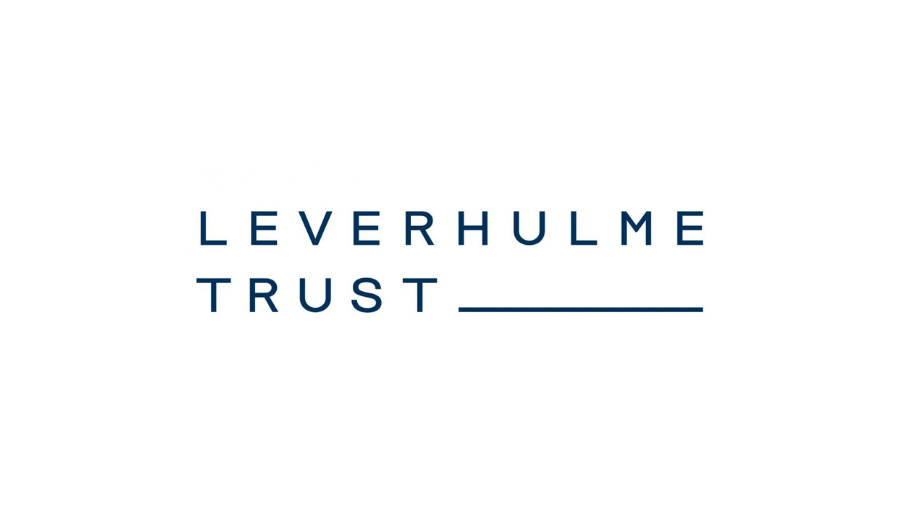
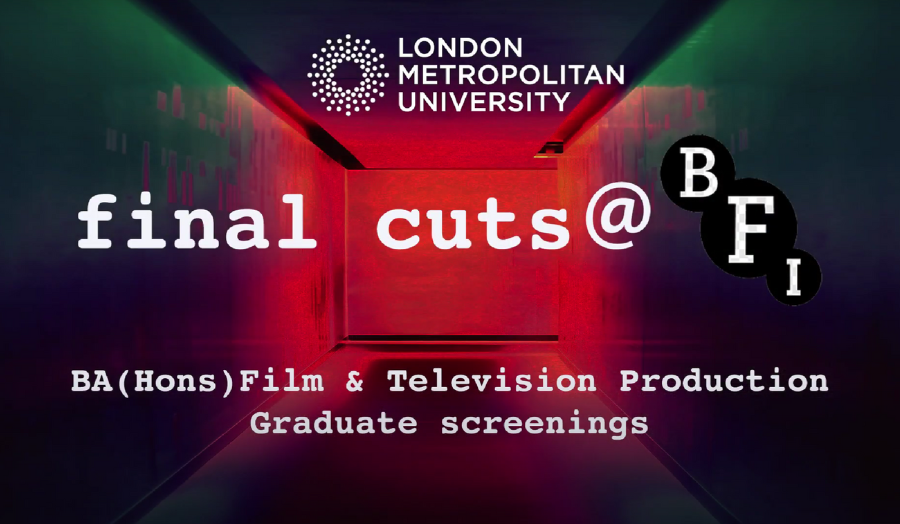

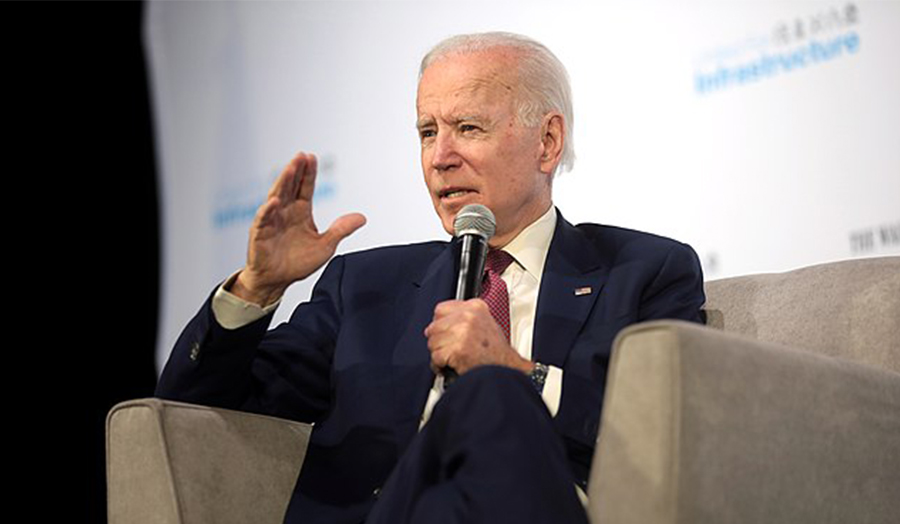



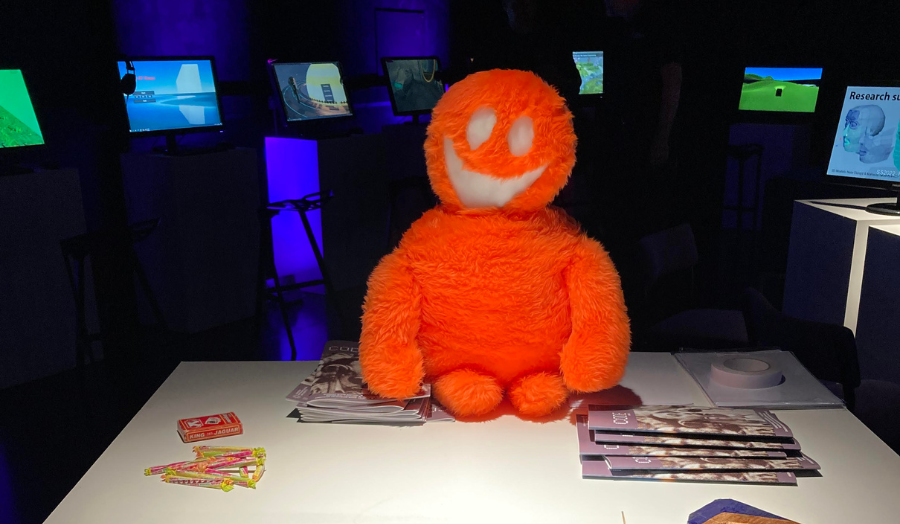
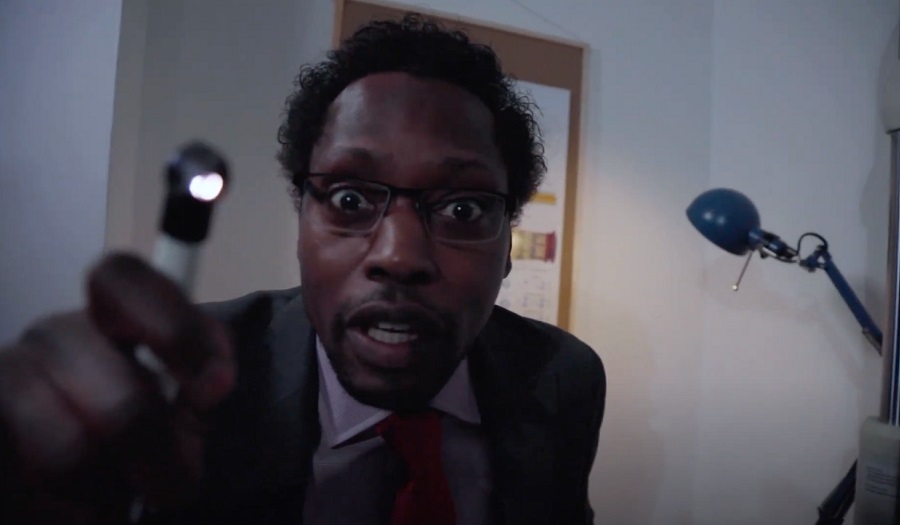

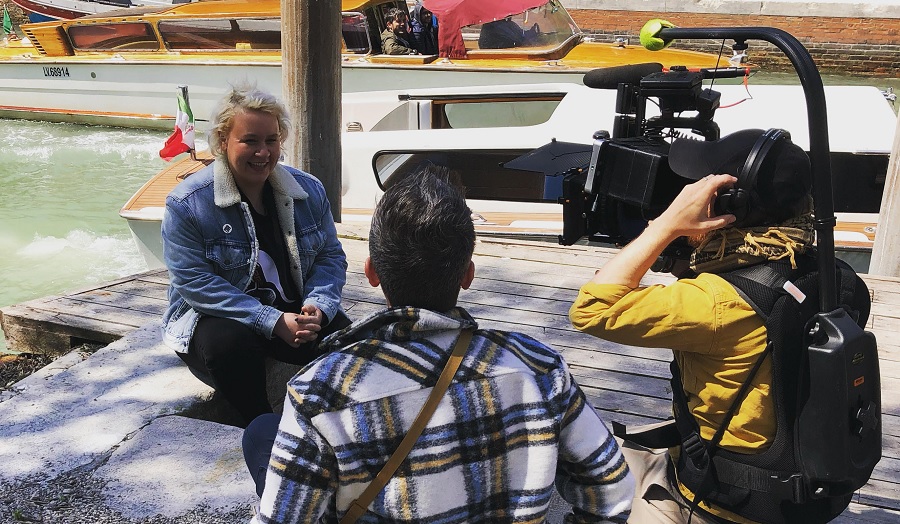
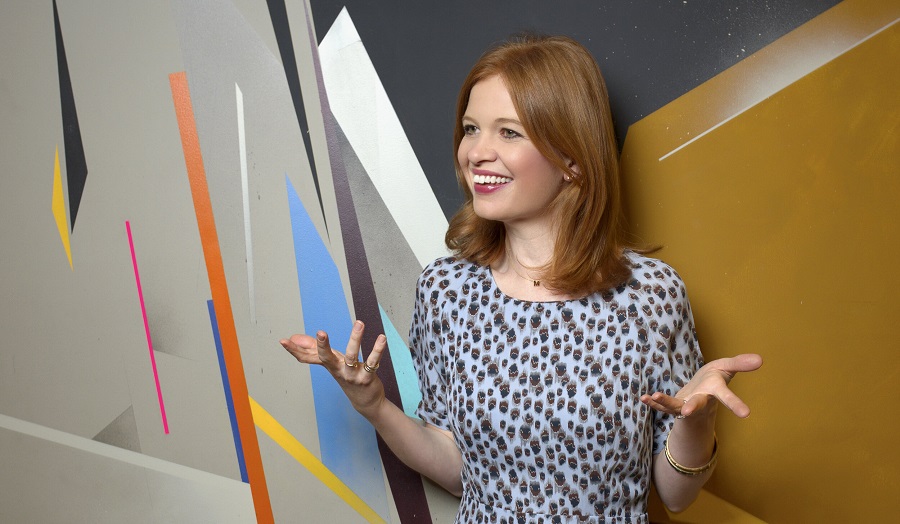
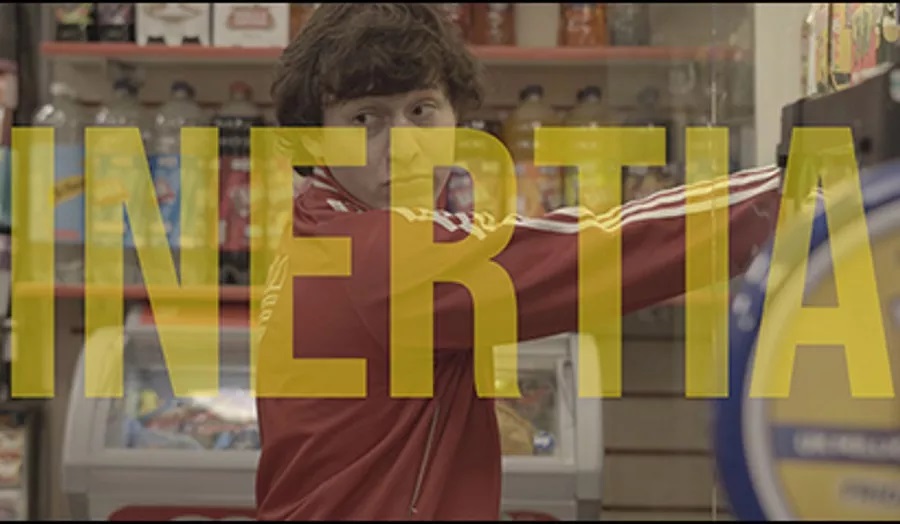
.jpg)
.jpg)
.jpg)
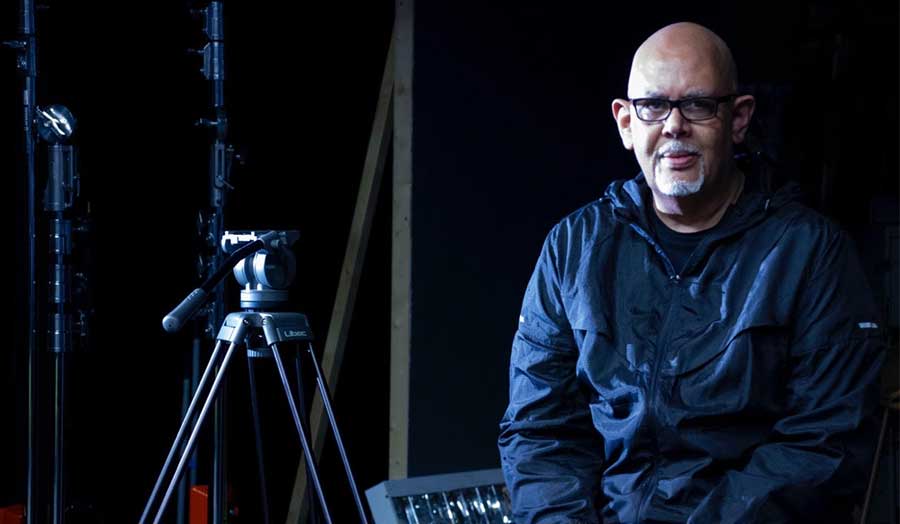


.jpg)


